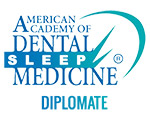
The relationship between sugar and oral health is no secret – it’s often painted as a threat by toothpaste ads and dentists alike. But is this justified, and does it mean total abstinence from sugar is the only way to achieve a healthy smile?
Continue reading to learn the complexities of sugar and its impact on your teeth.
What Does Sugar Do to Your Oral Health?
The primary concern about sugar and the thousands of products that contain it is the development of bacterial plaque. When sugar interacts with plaque in your mouth, it produces acid. This acid slowly erodes your tooth enamel, leading to cavity formation.
Cavities aren’t the only thing that plaque can damage. Sugar-fed plaque can also slip down into your gums, allowing the bacteria to grow there and cause gum disease. This causes your gum tissues to turn red with inflammation and become sensitive. If left untreated, it can even cause your teeth to fall out!
Does This Mean That Sugar Is Always Bad?
There is some good news for those with a sweet tooth. The amount of sugar you consume does play a part in plaque formation. However, it’s the frequency of exposure that contributes the most to tooth decay.
Continuous snacking or sipping sugary drinks throughout the day provides a constant supply of fuel for harmful bacteria. If you can avoid prolonged exposure and eat sugar in moderation, you can avoid advanced tooth decay.
Sometimes sugar can be beneficial to you. Research from the University of California suggests that it can lower cortisol, the hormone responsible for stress. Less stress increases the effectiveness of your immune system which can help prevent infections like gum disease.
How Can I Manage My Sugar Intake?
Sugar can be okay in moderation, but it is an addictive substance. Managing your sugar intake will help you prevent damage to your oral health. Here are some tips for helping to tame your sweet tooth:
- Read Labels: Be mindful of added sugars in packaged foods and beverages. Check ingredient lists for terms like sucrose, fructose, and high-fructose corn syrup.
- Opt for Water: Choose water over sugary drinks. Water helps rinse away sugar and bacteria, promoting better oral hygiene.
- Time Your Snacks: If you need a sugar fix, consider indulging during meals rather than snacking. The increased saliva production during meals aids in neutralizing acids.
- Practice Good Oral Hygiene: Regular brushing and flossing can help mitigate the effects of sugar on teeth.
Sugar, though a potential threat to dental health, doesn’t demand complete elimination from your diet. By understanding its effects and being responsible with your intake, you can strike a balance that allows for both a sweet treat and a healthy smile. If you need help keeping your teeth healthy, schedule an appointment with your dentist and have your teeth cleaned!
About the Author
Dr. Donald Marks is a friendly and talented dentist with decades of experience. He loves getting to know his patients and helping them pursue their treatment. He received his dental doctorate at the University of Pittsburgh School of Dental Medicine and has been an advocate for continuously learning ever since, staying abreast of the latest dental technology and techniques. To schedule an appointment at Donald Marks Family Dentistry, call (814) 826-3767 or visit the website to explore other services.




